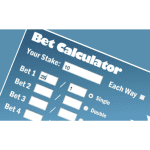Definition of Double Result Bet
A Double Result Bet, also known as a half-time/full-time bet, is a type of wager where bettors predict the outcome of a match at both half-time and full-time. This entails selecting one team to be leading at half-time and ultimately winning the match, or opting for a draw at half-time with one team emerging victorious by the end of the game. The Double Result Bet offers higher odds compared to traditional match result bets due to the added complexity of predicting two separate outcomes within the same game.
In essence, a Double Result Bet requires successful predictions for both the half-time and full-time results in order to win the bet. This type of wager adds an extra layer of strategy and anticipation for bettors, as they must consider factors such as team form, playing styles, and potential momentum shifts throughout the match to make accurate predictions. With the potential for increased winnings but also higher risk, Double Result Bets appeal to punters seeking a more challenging and rewarding betting experience.
How Does a Double Result Bet Work?
In a double result bet, punters predict both the outcome at halftime and the final result of a sporting event. For example, in a football match, one could wager on Team A winning at halftime and then the game ending in a draw. This type of bet offers more dynamic options compared to traditional bets where only the final result is considered.
To win a double result bet, both the halftime and full-time predictions must be correct. Each outcome is independent of the other, providing multiple opportunities for bettors to capitalize on their understanding of the game’s dynamics. This betting strategy requires a deeper analysis of teams’ performance patterns, form, and tactical approaches to predict how a match might unfold at different stages.
Types of Double Result Bets
In a double result bet, there are three main types that punters can choose from: Home-Home (HH), Draw-Home (DH), and Away-Away (AA). The Home-Home bet is a wager where the selected team is expected to be leading at both halftime and full time. On the other hand, the Draw-Home bet predicts that the game will be a draw at halftime, but the chosen team will emerge victorious by the end of the match. Lastly, the Away-Away bet is when the away team is anticipated to be in the lead at both the half and full-time whistle.
Each type of double result bet offers different odds and potential payouts based on the likelihood of the chosen outcome occurring. Punters should analyze the current form of the teams, the head-to-head record, and any other relevant factors before deciding which type of double result bet to place. By understanding the nuances of each option, bettors can make more informed decisions and increase their chances of success in the world of sports betting.
Advantages of Double Result Bets
Double Result bets offer the potential for higher returns compared to traditional bets by requiring punters to correctly predict the outcome at both half-time and full-time of a match. This added challenge can result in more lucrative odds, making it an attractive option for those looking to maximize their winnings.
Moreover, Double Result bets provide an opportunity for bettors to showcase their in-depth knowledge of the game and teams involved. By accurately predicting the performance of a team in the first half and how the game will conclude, punters can demonstrate their strategic insight and understanding of the sport, adding an element of skill to their betting experience.
Disadvantages of Double Result Bets
Placing a bet on the outcome of a sporting event can be thrilling, but double result bets come with their own set of disadvantages. One major downside is the higher level of complexity involved in predicting both the halftime result and the full-time result correctly. This complexity increases the likelihood of making a mistake, leading to potential losses for the bettor.
Furthermore, the odds for double result bets are typically higher compared to single outcome bets, which may seem enticing at first. However, these higher odds often reflect the increased difficulty of predicting two separate outcomes accurately. As a result, bettors may find themselves at a higher risk of losing their stake when engaging in double result bets.















